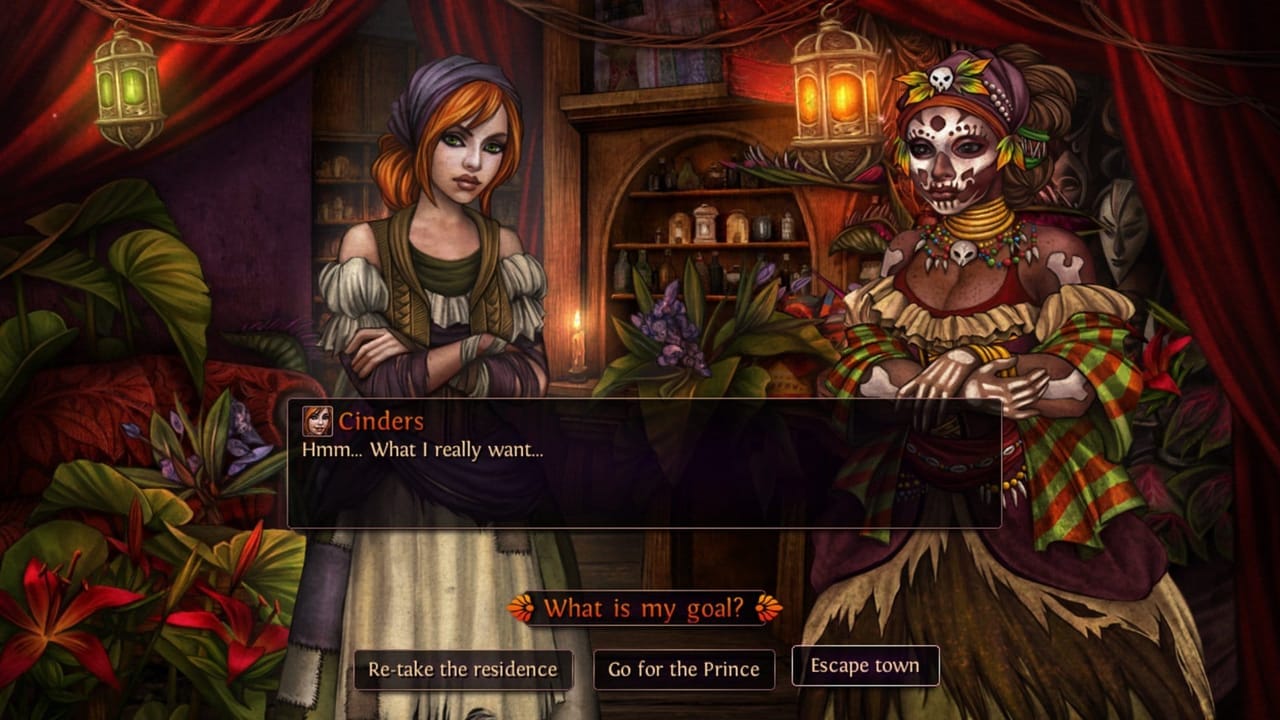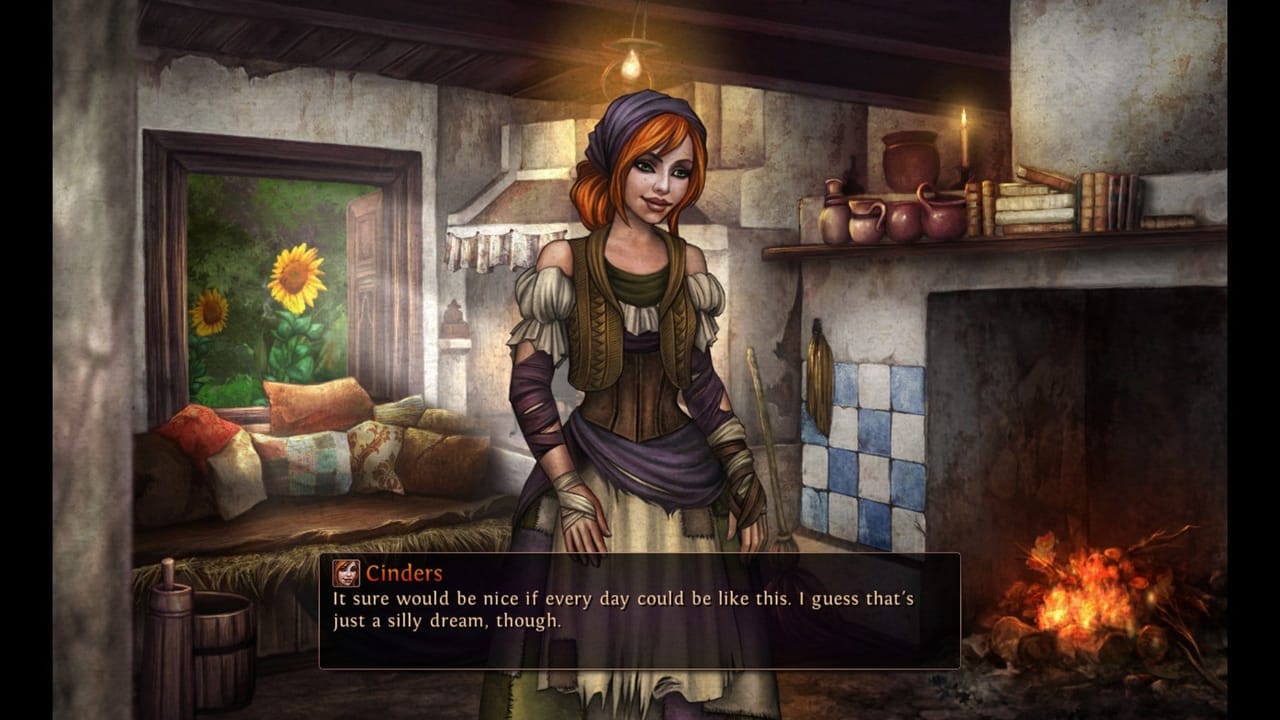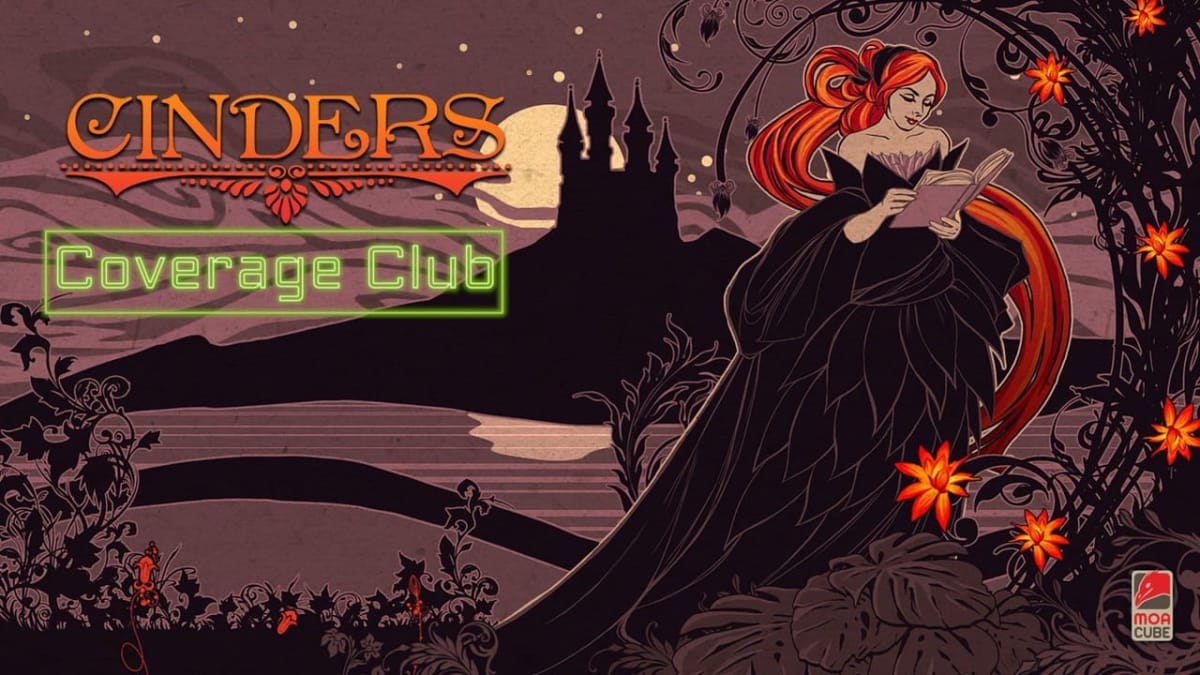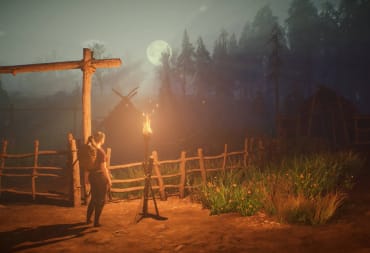When it comes to classic folklore, none are as prolific or memorable as fairytales. Often told to children, these fantastical yarns have spun countless adaptations over centuries of literary study. The motifs that have become commonplace enough to become classic clichés of literary fiction, ingrained into the minds of generations of children around the world.
Yet one problem often seen with fairytales is the simplistic derivatives of it all. A common complaint by many in literary circles is the use of the simplistic structure with a positive denouement. The curse of “happily ever after” becomes the mantra for almost every fairytale. It is no surprise that new mediums (such as video games) always put their own spins on the genre.
One such example is Cinders, an indie visual novel based on the story of Cinderella by developer Moa Cube. Like any form of storytelling, Cinders is a different take on the classic tale; one that has been retold countless times throughout many cultures over the years. Cinders showcases what can be done to twist the old into the new, transforming the dreamy, passive character of Cinderella into the spunkier, pro-active heroine of Cinder.

That context also twists the visual novel formula slightly. Moa Cube emphasizes player choice and role-playing as a primary function. This mostly reflects in the numerous decision points and over 300 options to uncover. Trivial decisions can have long-term repercussions, adding to the replay value. Featuring multiple endings, Cinders promises to give the player total control of the titular characters personality, which grows organically as the story unfolds.
Visual novels live or die on their writing and graphical representation. On both fronts, Cinders struggles a bit, though the overall package is still a solid tale of growth and power. The original fairytale embodies the “persecuted heroine” motif, but for Cinders the similarities end there. Moa Cube attempts to inject nuance into the characters of Cinders, each of the main roles being more complex in their presentation.
A lot of this is through the characters themselves. They're each well-written and avoid becoming the normal caricatures you'd expect. Cinders doesn’t start that way, of course. Early on, every character plays their expected role in the fairytale; the overbearing stepmother, the aloof daughters and the charming, naïve prince all come out of central casting. As time goes on, though, more complex motivations of loss, fear, depression and even pragmatic logic reveal themselves. Playing Cinders becomes about reading and understanding what motivates the characters around you. “Happily ever after” can mean different things for different people, Cinder included.
It helps that the dialogue between characters is very snappy, though it does go overboard at times. Some sections are also overly descriptive, giving not-so-subtle winks to the fairytale lineage of the story. These bits of the narrative come across as overly derivative, getting in the way of the more interesting interactions. Characters themselves are often walking contradictions with convoluted motivations, though this adds to the complexity by providing arcs that can be explored throughout the narrative.

Visually, Cinders invokes a warm art design, reminiscent of the sentimental landscapes found from a Thomas Kinkade painting. The use of light and color helps sell the more fantastical elements of the world. From the shabby bedroom where Cinder lives to the garish, opulent ballroom of her Stepmother, everything contrasts well with darker interior designs. Though not the most unique landscapes ever created, artist Gracjana Zielinska captured an otherworldly feel, setting up the perfect atmosphere for a fairytale. Character designs are bit more hit and miss, some of them working well in their modest appearance, others overly designed. There is a hint of anime-styled flairs within their design as well. Particularly how the face and eyes form into static, smirking grins and scowls.
Composer Rob Westwood stuck to a classical-style of compositions, using a combination of orchestral scoring with piano solos to help invoke specific moods. The overall musical score is a mix of whimsy and malice, reflecting sharp contrasts of the games often complex tone with high-quality productions throughout. Much like the visual style, it is not groundbreaking or unique. However, it is lovely and appropriate in heightening the drama of the narrative.
Moa Cube is able to play to the visual novel medium to their strengths, and in so doing have created a modern fairytale with Cinders. Complex and in the proactive hands of the player, Cinders is about uncovering your personal “happily ever after” for the journey you choose to take. Complete with updated, well-written characters, it is well worth a play for those willing to experience something magical yet surprisingly grounded. It's everything a good retelling should do.
TechRaptor covered Cinders on PC via Steam with a code provided by the developer. The game is also available on GOG.
Have a tip, or want to point out something we missed? Leave a Comment or e-mail us at tips@techraptor.net






